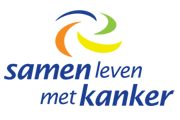Implementation of two guided self-help exercise programs in Dutch head and neck cancer care
Short project description
Head and neck cancer (HNC) patients often experience treatment-induced problems with eating, drinking, swallowing or speaking, imposing a huge impact on the daily life and quality of life of the patient and his/her loved ones. AmsterdamUMC has developed two self-help exercise programs targeting these problems: “Head Matters (HM)” (Halszaken) for patients treated with radiotherapy and “In tune without cords (ITwC)” (Verder Zonder Stembanden) for patients whose entire larynx (voicebox with vocal cords) has been surgically removed (see page on Selfcare Laryngectomy). In these self-help exercise programs, the muscles involved in swallowing and speaking are trained in order to maintain optimal function and thus quality of life. Patients receive an explanation of the exercise program from a speech therapist and perform the exercises at home for 10-12 weeks.
HM and ITwC have been positively assessed for patient satisfaction, feasibility and (cost)effectiveness. It is known from previous implementation research that these results are a requirement, but not sufficient, to make such innovations accessible to patients. The main goal of this study is to make sure the two exercise programs are structurally available in regular HNC care in the Netherlands. The subgoals are i) to adapt and renew the current version of “In tune without cords” and integrate it in the electronic patient dossier, ii) to investigate barriers and facilitators of implementation of HM and ITwC among healthcare professionals, and iii) to investigate the uptake and use of HM and ITwC among patients with HNC.
This study will use a mixed methods design, combining qualitative and quantitative research methods. In Work Package 1 (WP1) a renewed version of ITwC will be built and integrated in the EPD, involving all relevant stakeholders (patients, healthcare professionals, ICT experts). In WP2 barriers and facilitators of implementation of HM and ITwC will be investigated on the level of the healthcare professionals by asking them to complete the Measurement Instrument for Determinants of Innovation (MIDI) before, at 1 month and 1 year after implementation. In addition, healthcare professionals will be qualitatively interviewed on barriers and facilitators of implementation at 1 month and 1 year after implementation using purposive sampling. In WP3 the uptake and actual usage of HM and ITwC will be investigated on the patient level. Sociodemographic, clinical and health-related quality of life factors associated with uptake and usage will be investigated using logistic and linear regression models. Also, HNC patients (users and non-users) will be qualitatively interviewed using purposive sampling on experienced barriers and facilitators of usage of the self-help exercise programs. Insights obtained in the three WPs will immediately be used to facilitate implementation of HM and ITwC in the participating HNC centers.
The project is highly relevant for the implementation of HM and ITwC, as well as other supportive care innovations. Supportive care is under severe pressure in the current times of staff shortages and rising healthcare costs. Patients want to and can do more themselves, provided that they are given the necessary tools to further ensure their autonomicity.
Collaboration
This project is a collaboration between the department of Otolaryngology / head and neck surgery, department of Radiotherapy and Oncology of AmsterdamUMC, and the Dutch Head and Neck Society (NWHHT).
Funding
Maarten van der Weijden Foundation (2023 -2025).
Questions?
For questions, please contact Drs Fennetta van der Scheer, [email protected]




